Alisa Gitsba believes that she owes her love for music and an outstanding voice to, first of all, to her family: her relatives - both parents and sisters - are musically gifted people. On December 5, the famous Abkhaz singer celebrates her birthday. For this date, the WAC web information portal prepared an essay on the life and career of the artist.
Arifa Kapba
Crowded hall of the Abkhaz Drama Theater. On stage is the long-announced premiere of the State Youth Theater, the play "Keleshbey." After the curtain fell, the whole hall burst in stormy ovations to the actors, authors and, of course, the director, the national artist of Abkhazia Shalva Gitsba. And suddenly, among the spectators in the first row, the director sees his daughter Alisa: the fact that she will come to Moscow for the premiere was a surprise to him.
And she could not help it. Of course, she, an opera singer, in whose life there were so many premiers on various stages of the world, perfectly knows how important it is for a director and artist to be in the front row of her beloved and dear people!
Theatrical musical childhood
"We always went to the theater; each performance in which my father participated was a joyful event for our family. Going to the theater was accompanied by our own traditions - after the performance we always returned home along the embankment, because on the embankment, when the Abkhazia hotel was still working, on the first floor there was an amazing cafe selling the most delicious ice cream in the city. And for me the holiday would be spoiled if I walked along the embankment and did not eat this ice cream or did not drink coffee-glace. Those were our rituals. Remembering these episodes from my childhood, I understand how correct it all was, in this way we inculcated our love for theater and art," the people's artist of Abkhazia and the honored artist of Russia opera singer Alisa Gitsba recalls her happy childhood in Sukhum.
She was born on December 5, 1970 in the family of the famous actor of the Abkhaz drama theater Shalva Gitsba. Love for singing and a good voice, according to Alisa, were transmitted to her genetically, because in her family both parents and sisters had wonderful voices.
An important part of the future artist’s Sukhum childhood was an international chorus at the Palace of Pioneers, where Alisa sang with her sister. Alisa's sister was always the soloist, and she herself sang in the choir. In addition to folk songs, the choir also performed classics. Alisa says that for the first time she heard Stabat Mater by Pergolesi exactly in that choir and now, when she performs this work as a soloist, she always recalls rehearsals from childhood.
In the Sukhum music school, Alisa Gitsba studied vocal with the famous teacher Josephine Bumburidi. In 1989 she graduated from college in the class "Theory of Music" and entered the Russian Academy of Music named after the Gnesins in the class "Solo Academic Singing" with Professor Shilnikova. The first opera parts were sung in the Academy's operatic studio: this is Cherubino from Mozart's "The Marriage of Figaro", and Tatiana from Eugeny Onegin by Tchaikovsky, and other completely diverse parties.
Helikon as a home
The year of 1992 is of particular importance in the life of the actress, when she was accepted into the troupe of the Moscow Theater "Helikon-opera", in which she still works. In an interview with the "Argumenty Nedeli" newspaper, Alisa Gitsba said that the acquaintance with the "Helikon" Theater took place long before she was hired by the troupe. Once, as a spectator, she saw Leoncavallo's famous play "Pagliacci", which was held in the courtyard of the theater. "I found myself in a good team," recalls Gitsba, "for the first time I heard Vadik Zaplechny, Lena Kachura, Seryozha Yakovlev. Then it shocked me. I was trembling, but it was terribly interesting. The audience felt a sense of belonging - it was a complete feeling that you were the actor in the performance. And I fell in love with this theater for life."
A special event for all "Helikon" actors was the renovation of the theater building, which recently occurred. "I am very pleased that our theater has finally received a long-awaited building, a new stage, equipped with the latest technology, and a new repertoire, in premieres of which I have been actively involved in the past two seasons," Gitsba notes. - "This is Turandot in Giacomo Puccini's opera "Turandot", which premiered at the beginning of the year. The orchestra was run by our famous Maitre, guest conductor of many foreign orchestras, and perhaps the only legendary conductor belonging to a generation of musical geniuses today — People’s Artist of Russia Vladimir Fedoseyev."
Two more important roles of the "Helikon" soloist over the past few years are Leonora in Giuseppe Verdi's "Troubadour" and the combined role of Lisa and Prilepa in "The Queen of Spades" by Tchaikovsky. The director of both of them is Dmitry Bertman, the artistic director of the "Helikon". "The Troubadour" premiere was conducted by a young, but already quite famous in Europe, Spanish conductor Oliver Dias, whose collaboration with Alisa Gitsba is regarded as "great happiness."
The repertoire of Alisa Gitsba's soprano is a variety of parties. Among them are Aida from "Aida", Violetta from "Traviata", Lady Macbeth from "Macbeth" by Italian composer Giuseppe Verdi, and Lisa from Tchaikovsky's "The Queen of Spades", Emilia Marty from "Means of Macropoulos" by Janacek, Madame Liduan from the "Dialogues of the Carmelites" by Poulenc, Anthonia from Offenbach’s "The Tales of Hoffmann" and others.
"I did not take it"
But the artist does not accept every role.
"I had several roles that I had to give up," says Gitsba, "and, of course, it was unpleasant for my artistic director, conflicts arose on this basis, but what if I don’t understand this character?" For example, Katerina Izmaylova from "Lady Macbeth of Mtsensk" (Opera of Dmitri Shostakovich after the story of the same name by Nikolai Leskov - ed.), I did not accept her, I did not understand her, how can I kill my own child?"
Later this performance in the brilliant production of Dmitry Bertman won the main nominations of the prestigious Russian theater prize "Mask". The prize was awarded to Anna Kazakova, who performed the main part in the opera. Alisa says that after that Dmitry Alexandrovich Bertman asked her to watch the performance, and she, of course, saw it and told her artistic director that she considered both the opera performance and the performance of the main part to be brilliant, but still "doesn’t see herself in this production."
Alisa Gitsba, of course, does not single out any of the parties she has performed, says that each of them is valuable and loved.
"The party is just about notes on a staff. Everything else is already a role, when you live in it, work on it. You make up an image for yourself; fall in love with this character. Trying ... even if it’s insidious Lady Macbeth, to find some excuse for her, you love her in your own way. And, for example, I cannot tell you whom I love more, Aida or Macbeth. Aida is a sacrificial, beautiful heroine who dies for the sake of her beloved, and Lady Macbeth incites her lover to be killed and betrayed in order to become the queen, to feel power. But then she repents, catharsis comes. In the scene of somnambulism, she relives her whole life. Which of these images do I like more? I don’t know. Both of them are interesting to me," Gitsba says in an interview with Sputnik Abkhazia.
In addition to the opera roles, the singer’s repertoire includes many samples of chamber music: songs and romances by famous Russian and European composers — Glinka, Mussorgsky,
Rachmaninov, Schubert, Schumann, Brahms, Liszt, Debussy, Ravel and many others. As for artistic styles, Alisa Gitsba tried herself in various directions - from baroque to avant-garde music of the twentieth century. "Apart from my work in the theater, I am also happy that I have the opportunity to perform at various concert venues and with various concert programs not only in Moscow, but also abroad and in Russia," says Alisa Gitsba.
"I collaborate with an excellent pianist, a professor at the Moscow Conservatory Svetlana Bondarenko, acquaintance with whom gave me a lot in terms of musical and vocal development, namely, gave me an understanding of chamber music."
During her career, Alisa Gitsba managed to work with many wonderful representatives of the music world. Among them was the phenomenal Greek and Russian conductor Theodore Curentzis. In 2009, Alisa participated in the world premiere of the opera by the modern Russian composer Alexei Syumak "Station" at the contemporary art festival "Territory", with Curentzis at the conductor's stand, directed by Kirill Serebrennikov.
"It’s a pleasure to work with him (Curentzis - note ed.)," says Alisa Gitsba in an interview with the Abkhaz State Television. "The most subtle nuances, the most subtle attitude to music, insane fortissimo, the walls tremble, and such pianissimo that ears must turn into a locator to hear it - this is such a huge dynamic palette. Very few conductors achieve this effect."
Being at home
Alisa Gitsba conducts active concert activities in Russia and abroad. Performing at various venues in various musical theaters, Alisa Gitsba believes that the most exciting and important are usually concerts in her homeland, in Abkhazia.
In an interview with Sputnik Abkhazia, she says: "Any stage performance is one’s half life, that’s why I want to appear in the best possible way, I want to show everything I am capable of. And I just want to attract the audience to myself, give a part of my soul, this is a need. It happens always wherever I perform. And when I come home, this feeling intensifies a hundredfold, because here is not just my family castle, here everyone with whom I grew up, who watched my development, my career achievements, who are proud of me, criticize, love and at the same time witness certain flaws. People who are looking at me carefully, looking through a magnifying glass. It just gives a certain imprint of responsibility and requires even greater concentration."
People’s Artist of Abkhazia Alisa Gitsba always treated with special trepidation memorable dates in the history of her native land, both joyful and tragic. She was one of the initiators of the performance of "Requiem" by Giuseppe Verdi on the stage of the Abkhaz State Philharmonic in 2013 - in memory of the twentieth anniversary of the March offensive operation (failed offensive operation to liberate Sukhum in the 1992-1993 Patriotic War of the People of Abkhazia - ed.)
"Victory is not only joy. It comes at the cost of human lives and is filled with the sorrow of the survivors. "Requiem" is dedicated to the memory of the victims of this war, to whom we include both the dead soldiers, and all those who became innocent victims, and those who survived, but lost their relatives and friends. Requiem aeternam ... Eternal memory! We remember, we honor, we dedicate to them the beautiful, powerful, bright music of the great Italian composer Giuseppe Verdi", - Alisa addressed the public with these words in March 2013.
The performance of the "Requiem" had a truly grand scale. The Big Academic Choir "Masters of Choral Singing", the Chamber Choir of the Tchaikovsky Moscow State Conservatory were involved in it, the Sochi municipal symphony orchestra and the State Chamber Orchestra of the
Republic of Abkhazia also accompanied the soloists. The soloists of the concert were Alisa Gitsba herself, the soloist of the St. Petersburg Philharmonic Lyudmila Borisova, the soloist of the Stanislavsky and Nemirovich-Danchenko Musical Theater Najmiddin Mavlyaev and the soloist of the Astrakhan State Opera and Ballet Theater Maxim Paliy. The performance of the "Requiem" on the main stage of Abkhazia became a truly significant cultural event, which touched the hearts of those who sat in the hall and those who watched it live on the state television channel.
Alisa has lived for many years with her family in Moscow, which she loves and considers her second home. "It’s comfortable here, I am glad that I can do my favorite work here, be realized and grow as a musician, attend interesting concerts and performances, get spiritual food, I always have the opportunity to communicate with our countrymen through interesting events organized by the Abkhaz Diaspora of Moscow and the Embassy of Abkhazia in Moscow," - said Alisa.
Despite the fact that the singer has not lived in Abkhazia for a long time, she is keenly interested in all the events, both cultural and political, that take place in Abkhazia. When asked if she will ever return to her homeland, she finds it difficult to answer and says that "maybe someday."
Alisa Gitsba has a wonderful family, her daughter and son are musically gifted by nature, and the professional opinion of her husband, also a musician, is of particular importance to Alisa.
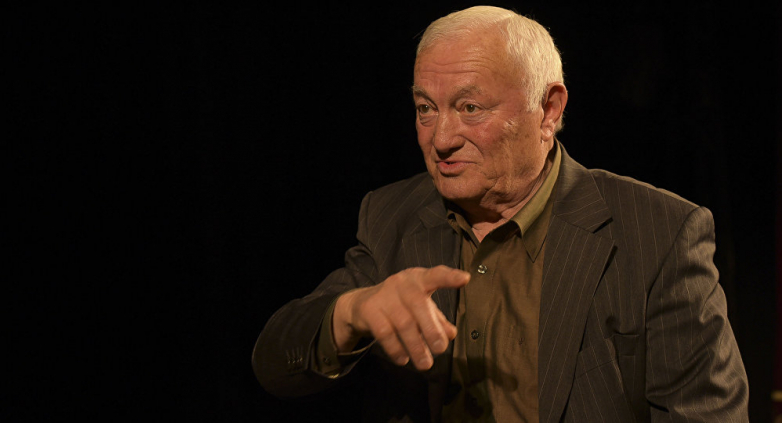
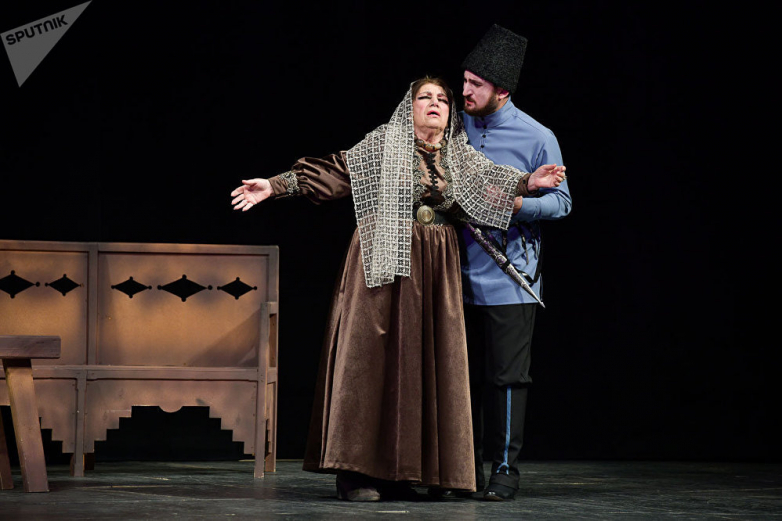
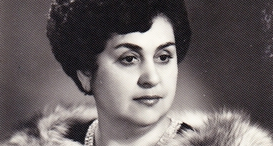
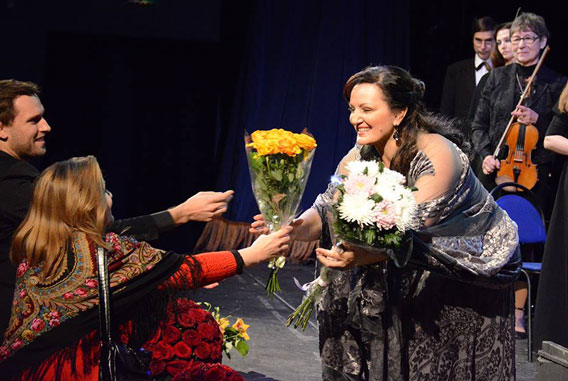
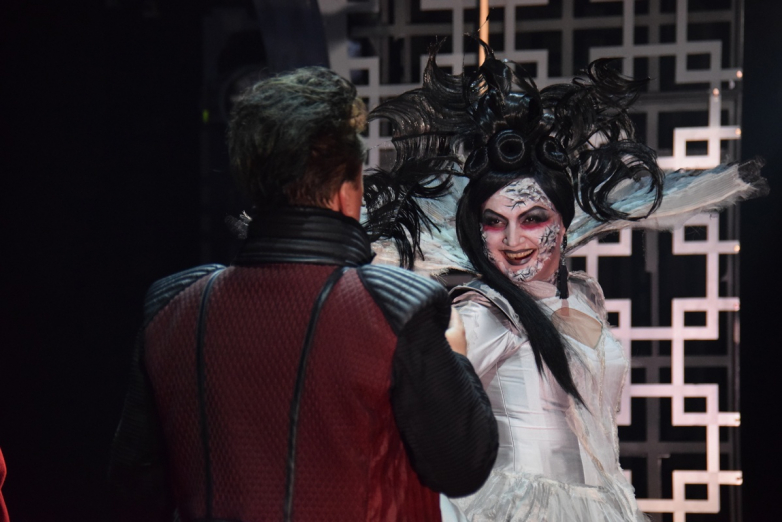
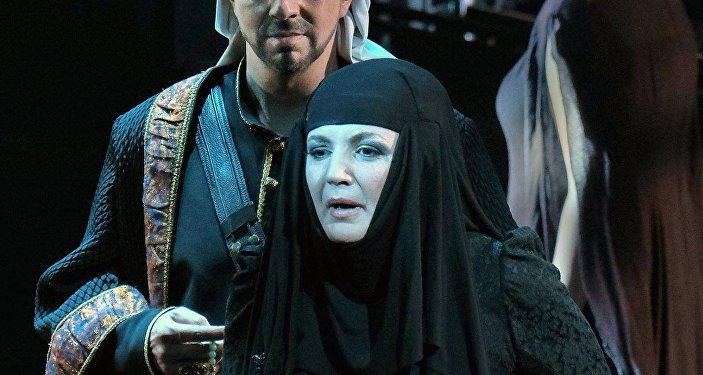
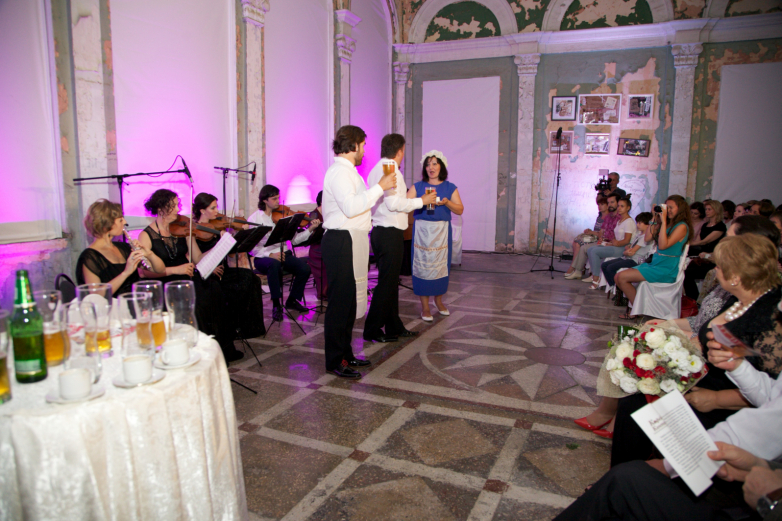
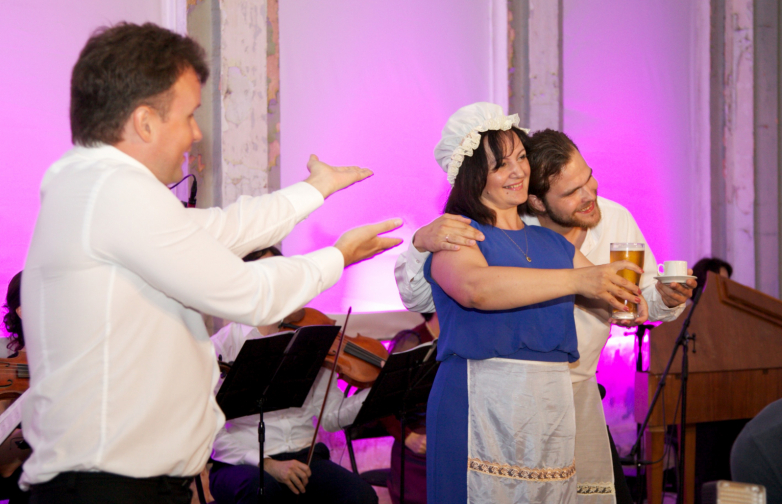
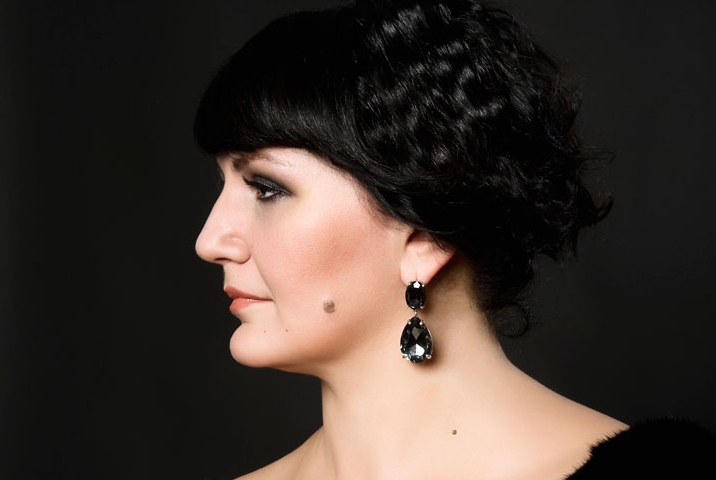
to login or register.